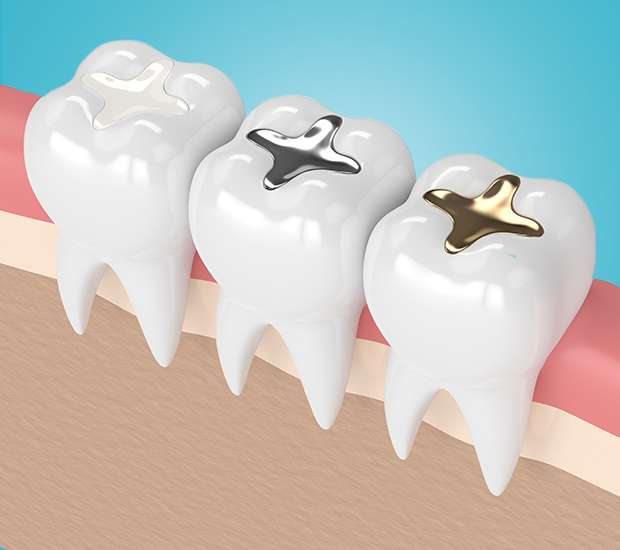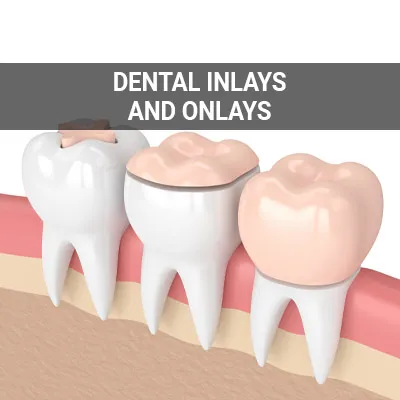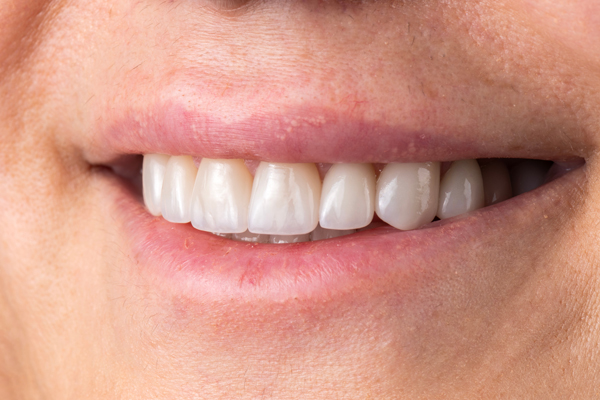Composite Fillings Charlotte, NC
Composite fillings treat cavities to protect teeth and restore oral health. There are various types of fillings that dentists can use to fill a cavity. However, composite fillings are the most common type due to their natural appearance and good durability.
If you have a tooth that requires a filling, composite fillings may be a good option. Composite fillings are available at Randolph Dental Care in Charlotte and the surrounding area. Call us today at (704) 366-3622 to learn more about our services or schedule an appointment.
Understanding Composite Fillings
Composite fillings consist of a tooth-colored resin composed of plastic and some additives. In some cases, there are also glass particles mixed with the plastic. Although mostly used for treating cavities, a composite filling can also improve a tooth's cosmetic appearance, such as reshaping a tooth.
Other common types of fillings include gold, porcelain, and silver amalgam. Compared to composite fillings, metal fillings are significantly more visible in the mouth. While porcelain fillings are closer to the surrounding teeth in color, they can be quite costly. For many patients, composite fillings offer a balance of aesthetics, affordability, and durability.
“For many patients, composite fillings offer a balance of aesthetics, affordability, and durability.”
Benefits of Composite Tooth Fillings
If a patient has tooth decay, a composite filling may be the solution. According to one National Institute of Health survey, 92% of adults between ages 20 and 64 have tooth decay. There are various benefits of composite fillings, including:
- Fix Decay and Other Issues: Composite fillings primarily fix tooth decay. They can also fix cracks, chips, and tooth wear. This helps to restore a tooth’s function and health.
- Subtle Aesthetics: Compared to other filling types, composite fillings are very subtle. Our dentist can color match the filling to the surrounding teeth. Many patients prefer this natural appearance.
- Strong Bonding to Teeth: Composite fillings bond well with the treated tooth. It can help to strengthen and support the remaining natural tooth. This filling provides support to prevent or slow the worsening of further tooth damage.
- Minimal Drilling Needed: Relative to other filling types, especially silver amalgam, composite filling requires little drilling. These fillings can fit into small cavity spaces. This results in patients keeping more of their natural teeth.
“According to one National Institute of Health survey, 92% of adults between ages 20 and 64 have tooth decay.”
Other Types of Fillings
Although composite fillings are the most popular type of filling, they are not always the right choice for every patient. Some people may have a specific aesthetic preference for a different kind of filling. For example, although tooth-colored fillings are more subtle, some people prefer the appearance of gold fillings. Additionally, gold and porcelain fillings are more durable than composite fillings. They may last 10 or more years longer than composite filling material. Silver amalgam may also last about five years longer than a composite filling.
According to the American Dental Association, composite fillings can also take longer to place than other types of fillings. Compared to silver amalgam, a composite filling can be more expensive. However, this may depend on insurance coverage. However, it is less costly than gold and porcelain filling. Patients should discuss the benefits and drawbacks of each option with our dentist before making a decision.
“Although composite fillings are the most popular type of filling, they are not always the right choice for every patient.”
Check out what others are saying about our dental services on Yelp: Composite Fillings in Charlotte, NC
When to Get a Filling
A filling is necessary when tooth decay has weakened the structure of the tooth. If left untreated, it can lead to serious dental problems. Fillings repair a tooth that has been cracked, broken, or worn down. We can inform patients if they require a filling.
While people of all ages can experience a dental event that requires a filling, school-age children and teens are more often more susceptible. Age, oral hygiene, diet, and genetics all play a factor in the risk for tooth decay. Proper oral hygiene and regular trips to the dentist will help reduce that risk and the need for a filling.
“A filling is necessary when tooth decay has weakened the structure of the tooth.”
Questions Answered on This Page
Q. What are composite fillings?
Q. What are the benefits of composite fillings?
Q. What are some potential disadvantages of composite fillings?
Q. Who should get tooth fillings?
People Also Ask
Q. How can a person's diet help with tooth decay?
Q. Why does the dentist use fluoride mouthwash in the cleaning?
Cost Considerations
Composite fillings typically cost more than silver amalgam but less than other options. In most cases, tooth fillings are covered by insurance as they are deemed essential health care treatments. We recommend reaching out to an insurance provider to determine whether there are any co-pays involved.
When considering the different types of fillings, insurance providers can assess what a patient's plan covers. Our staff can work to find the best solution that fits a patient's budget.
“Composite fillings typically cost more than silver amalgam but less than other options.”
Frequently Asked Questions
Q. How long does it take to place a composite filling?
A. Compared to a traditional silver filling, a composite filling takes about 10-20 minutes longer to put into place. That depends on the size and location of the filling. You should expect to be in the dental chair for at least an hour.
Q. What are the advantages of a tooth-colored filling?
A. One of the major advantages of a tooth-colored filling is its ability to be matched to the same shade as your teeth. This provides a seamless look. Similar to other types of fillings, a composite filling also protects your tooth from further decay.
Q. What material makes up a composite filling?
A. Composite fillings comprise resin material that contains no metal. Instead, it is a mixture of powdered glass, silica, or other ceramic particles and plastic compounds. That makes it a good option for people who have metal allergies or want to avoid metal fillings.
Q. How much do composite fillings cost?
A. Composite fillings, like most other fillings, are typically covered by insurance as they are considered essential restorative procedures. However, we always recommend patients contact their insurance providers to determine any out-of-pocket costs before starting any treatment. We can also discuss any payment information during your consultation.
Q. How long do composite fillings last?
A. On average, a composite filling lasts around seven years. However, newer research has shown they can last for a decade or more if the filling is smaller and good oral hygiene practices get followed. Making regular trips to the dentist will help ensure your tooth-colored filling lasts as long as possible.
Dental Terminology
Call Us Today
If you have a tooth that requires a filling, do not hesitate to seek treatment. Our team at Randolph Dental Care can help. Call us today at (704) 366-3622 to learn more about our services or schedule an appointment.
Helpful Related Links
- American Dental Association (ADA). Glossary of Dental Clinical Terms. 2024
- American Academy of Cosmetic Dentistry® (AACD). Home Page. 2024
- WebMD. WebMD’s Oral Care Guide. 2024
About our business and website security
- Randolph Dental Care was established in 2016.
- We accept the following payment methods: American Express, Cash, Check, Discover, MasterCard, and Visa
- We serve patients from the following counties: Mecklenburg County
- We serve patients from the following cities: Charlotte, Matthews, Huntersville, Fort Mill, and Pineville Mint Hill
- Norton Safe Web. View Details
- Trend Micro Site Safety Center. View Details
Back to top of Composite Fillings











